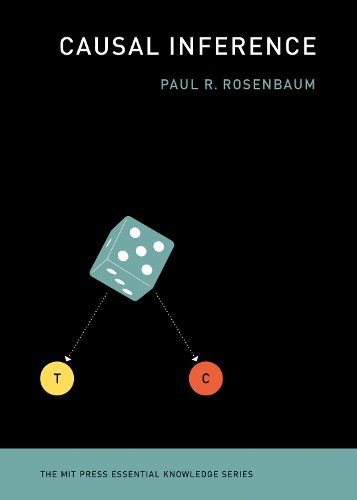Readings Newsletter
Become a Readings Member to make your shopping experience even easier.
Sign in or sign up for free!
You’re not far away from qualifying for FREE standard shipping within Australia
You’ve qualified for FREE standard shipping within Australia
The cart is loading…






A nontechnical guide to the basic ideas of modern causal inference, with illustrations from health, the economy, and public policy.
Which of two antiviral drugs does the most to save people infected with Ebola virus? Does a daily glass of wine prolong or shorten life? Does winning the lottery make you more or less likely to go bankrupt? How do you identify genes that cause disease? Do unions raise wages? Do some antibiotics have lethal side effects? Does the Earned Income Tax Credit help people enter the workforce?
Causal Inference provides a brief and nontechnical introduction to randomized experiments, propensity scores, natural experiments, instrumental variables, sensitivity analysis, and quasi-experimental devices. Ideas are illustrated with examples from medicine, epidemiology, economics and business, the social sciences, and public policy.
$9.00 standard shipping within Australia
FREE standard shipping within Australia for orders over $100.00
Express & International shipping calculated at checkout
Stock availability can be subject to change without notice. We recommend calling the shop or contacting our online team to check availability of low stock items. Please see our Shopping Online page for more details.
A nontechnical guide to the basic ideas of modern causal inference, with illustrations from health, the economy, and public policy.
Which of two antiviral drugs does the most to save people infected with Ebola virus? Does a daily glass of wine prolong or shorten life? Does winning the lottery make you more or less likely to go bankrupt? How do you identify genes that cause disease? Do unions raise wages? Do some antibiotics have lethal side effects? Does the Earned Income Tax Credit help people enter the workforce?
Causal Inference provides a brief and nontechnical introduction to randomized experiments, propensity scores, natural experiments, instrumental variables, sensitivity analysis, and quasi-experimental devices. Ideas are illustrated with examples from medicine, epidemiology, economics and business, the social sciences, and public policy.